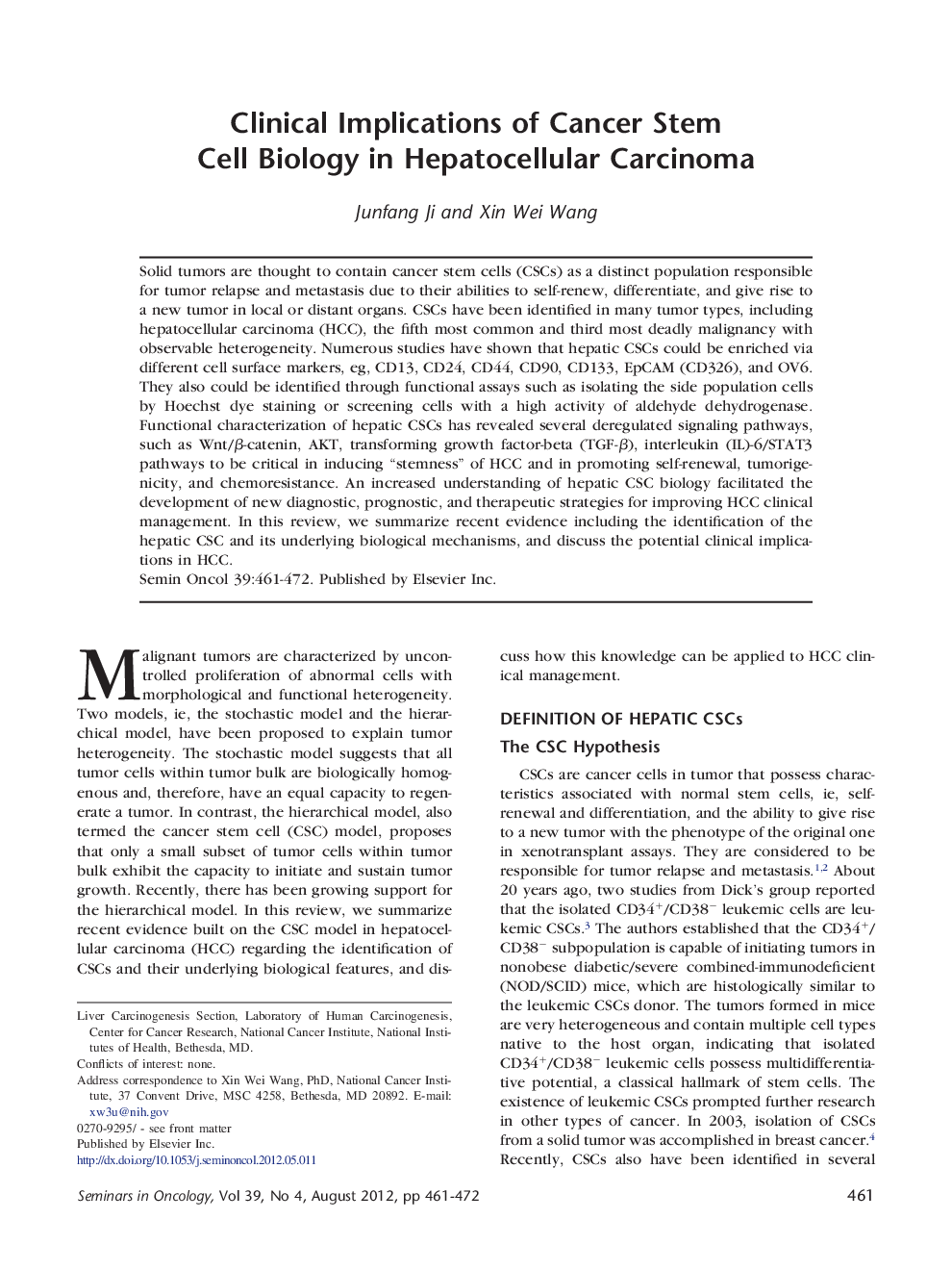| کد مقاله | کد نشریه | سال انتشار | مقاله انگلیسی | نسخه تمام متن |
|---|---|---|---|---|
| 2162122 | 1091235 | 2012 | 12 صفحه PDF | دانلود رایگان |
عنوان انگلیسی مقاله ISI
Clinical Implications of Cancer Stem Cell Biology in Hepatocellular Carcinoma
دانلود مقاله + سفارش ترجمه
دانلود مقاله ISI انگلیسی
رایگان برای ایرانیان
موضوعات مرتبط
علوم زیستی و بیوفناوری
بیوشیمی، ژنتیک و زیست شناسی مولکولی
تحقیقات سرطان
پیش نمایش صفحه اول مقاله

چکیده انگلیسی
Solid tumors are thought to contain cancer stem cells (CSCs) as a distinct population responsible for tumor relapse and metastasis due to their abilities to self-renew, differentiate, and give rise to a new tumor in local or distant organs. CSCs have been identified in many tumor types, including hepatocellular carcinoma (HCC), the fifth most common and third most deadly malignancy with observable heterogeneity. Numerous studies have shown that hepatic CSCs could be enriched via different cell surface markers, eg, CD13, CD24, CD44, CD90, CD133, EpCAM (CD326), and OV6. They also could be identified through functional assays such as isolating the side population cells by Hoechst dye staining or screening cells with a high activity of aldehyde dehydrogenase. Functional characterization of hepatic CSCs has revealed several deregulated signaling pathways, such as Wnt/β-catenin, AKT, transforming growth factor-beta (TGF-β), interleukin (IL)-6/STAT3 pathways to be critical in inducing “stemness” of HCC and in promoting self-renewal, tumorigenicity, and chemoresistance. An increased understanding of hepatic CSC biology facilitated the development of new diagnostic, prognostic, and therapeutic strategies for improving HCC clinical management. In this review, we summarize recent evidence including the identification of the hepatic CSC and its underlying biological mechanisms, and discuss the potential clinical implications in HCC.
ناشر
Database: Elsevier - ScienceDirect (ساینس دایرکت)
Journal: Seminars in Oncology - Volume 39, Issue 4, August 2012, Pages 461-472
Journal: Seminars in Oncology - Volume 39, Issue 4, August 2012, Pages 461-472
نویسندگان
Junfang Ji, Xin Wei Wang,